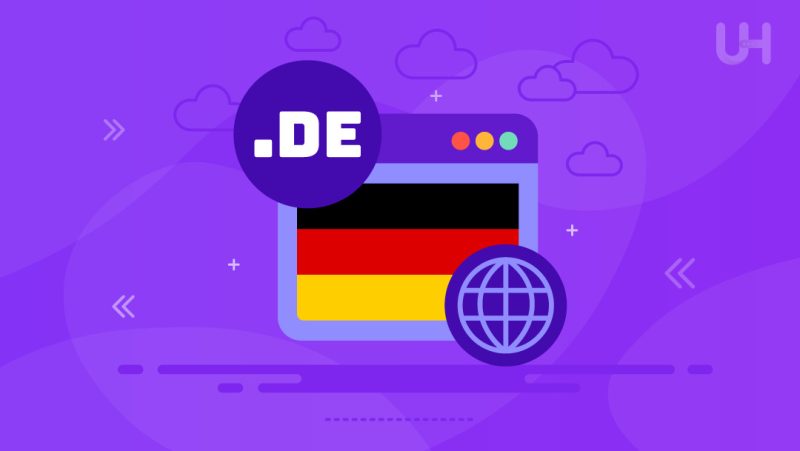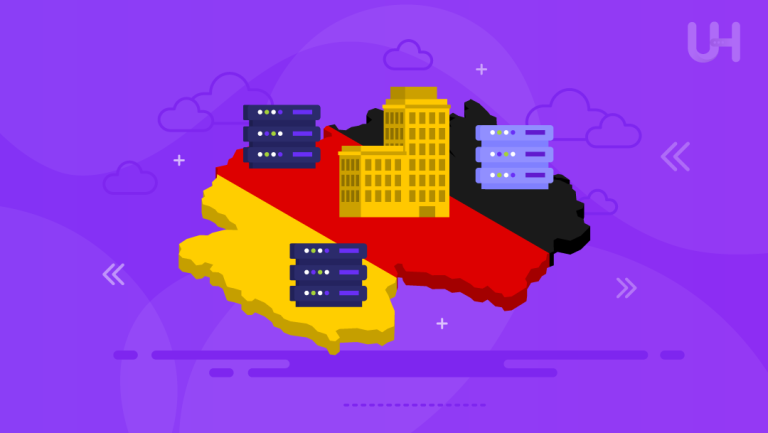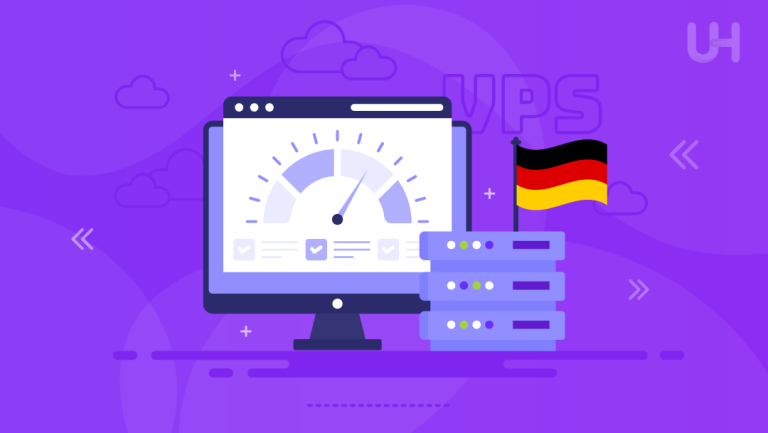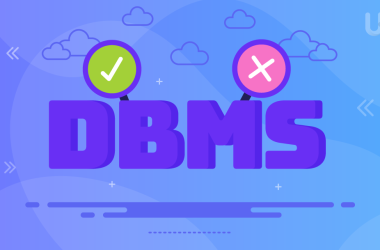Domain names are essential internet components, serving as unique identifiers for websites. They consist of the business name followed by an extension, such as .com or .org. Among these extensions are country code top-level domains (ccTLDs), which represent specific countries or territories online. One prominent ccTLD is .DE domain, which signifies Germany’s online presence.
The .DE domain extension is widely trusted and recognized, making it an attractive choice for businesses and individuals looking to establish a localized identity or target the German-speaking audience. In this blog, we’ll explore what .DE domains are, their significance, and how you can acquire one for your online business.
What is DE Domains?
The .DE domain is a country code top-level domain (ccTLD) assigned to Germany. It serves as a digital identifier for dedicated German server websites, offering a localized online presence for businesses, organizations, and individuals operating within or targeting the German market.
The .DE domain was introduced in 1986 and has since become one of the most popular ccTLDs worldwide. It is managed by DENIC eG, a nonprofit organization responsible for the administration and registration of .DE domains. Over the years, the .DE domain has played a crucial role in shaping Germany’s digital landscape, reflecting the country’s technological advancements and online presence.
Importance of German Domain Names
Localized online presence: Obtaining a .DE domain allows businesses and individuals to establish a localized online presence in Germany. It signifies a connection to the German market, making it easier for users in Germany to find and engage with the website. Moreover, this localized approach can enhance brand visibility and attract targeted traffic from the region.
Trust and credibility: Websites with a .DE domain often enjoy higher levels of trust and credibility among German internet users. The familiarity of the domain extension instills confidence in the authenticity and reliability of the website. Moreover, this trust factor can positively influence user engagement, increasing conversions, customer loyalty and brand loyalty.
Targeting German-speaking audience: The .DE domain provides a unique opportunity to target the German-speaking audience, which includes not only users in Germany but also in neighboring countries such as Austria and Switzerland. By aligning with the .DE domain, businesses can effectively reach this demographic. Moreover, tailor their online content and offerings to suit their preferences and needs.
How to Get a .DE Domain
Research and Planning
Before acquiring a .DE domain, it’s essential to conduct thorough research to ensure the desired domain name is available. Several domain registration websites allow users to check the availability of .DE domains by simply entering their desired domain name into a search tool. This step helps avoid potential conflicts with existing domain owners and ensures the chosen domain accurately represents the brand or entity.
Where to Buy .DE Domain?
Once the availability of the desired .DE domain is confirmed, the next step is to choose a registrar to facilitate the domain registration process. Registrars are companies accredited by DENIC eG to provide de domain registration services. Moreover, it’s advisable to select a reputable registrar with a track record of reliable service, competitive pricing, and user-friendly interface.
Ready to Establish Your Online Presence in Germany?
Whether you’re a business looking to target German audience effectively or establish a localized online presence, .DE domains offer a strategic advantage. Explore the power of .DE domains and kickstart your journey to digital success today!
Registration Process
To register a .DE domain, individuals and entities must meet certain eligibility criteria set by DENIC eG. Generally, registrants must have a valid postal address in Germany or a German postal address for administrative purposes. Additionally, businesses and organizations must be legally registered in Germany or have a representative office in the country.
Documentation and Verification
During the registration process, registrants may be required to provide documentation to verify their eligibility and identity. This documentation typically includes proof of address, such as a utility bill or official government document, and legal identification, such as a passport or driver’s license. The registrar may also conduct additional verification checks to ensure compliance with DENIC’s policies.
Payment Procedures
Registrants are required to pay a registration fee to secure their .DE domain. The registration fee may vary depending on the registrar and the duration of the registration period chosen (e.g., one year, two years, etc.). Moreover, payment methods accepted by registrars typically include credit/debit cards, bank transfers, and PayPal.
Post-registration Considerations
After successfully registering a .DE domain, registrants need to configure the domain’s Domain Name System (DNS) settings to point to their web hosting provider or server. This process involves updating the domain’s DNS records to specify the server’s IP address where the website’s files are hosted. Moreover, DNS configuration is crucial for ensuring the proper functioning of the .DE domain and its associated website.
Renewal and Maintenance
.DE domains are typically registered for a specific period, such as one year or two years, after which they must be renewed to remain active. Registrants should keep track of the expiration date and renew the domain in a timely manner to avoid expiration and potential loss of ownership. Additionally, ongoing maintenance of the domain, such as updating contact information and DNS settings, is necessary to ensure its smooth operation.
Compliance with Regulations
Registrants are required to comply with DENIC’s registration policies and regulations governing .DE domains. This includes providing accurate and up-to-date registration information, adhering to DENIC’s terms of service, and complying with German laws and regulations related to domain registration and internet usage. Moreover, failure to comply with these regulations may result in the suspension or revocation of the .DE domain.
Tips for Managing a .DE Domain
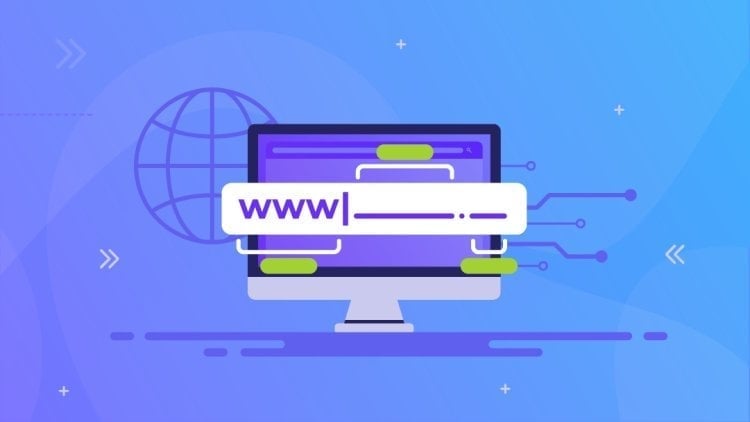
Security Measures
SSL certificates: Implementing SSL (Secure Sockets Layer) certificates is crucial for securing data transmitted between the website and its visitors. This encryption technology not only protects sensitive information, such as personal and financial data, but also enhances trust and credibility among users. Websites with SSL certificates display a padlock icon in the browser’s address bar, indicating a secure connection. Moreover, obtaining an SSL certificate for your .DE domain is essential for safeguarding user privacy and protecting against cyber threats.
WHOIS privacy: Consider opting for WHOIS privacy protection to conceal your personal or organizational information from public access. By default, domain registration information, including the registrant’s name, address, and contact details, is publicly accessible through the WHOIS database. WHOIS privacy services offered by registrars allow you to replace this information with generic contact details, preserving your privacy and reducing the risk of spam, identity theft, and unsolicited communications.
Localization Strategies
Content adaptation: Customize your Greman WordPress hosting website’s content to cater to the preferences and interests of your German audience. This involves translating your website’s content into German and adapting it to resonate with the local culture, customs, and trends. Tailoring your content to address specific needs and preferences can enhance user engagement and encourage repeat visits. Additionally, consider incorporating localized imagery, testimonials, and references to establish a stronger connection with German users.
Language preferences: Offer language preferences on your website to accommodate users who prefer to browse in languages other than German. Provide clear navigation options or language selectors that allow visitors to switch between languages effortlessly. By supporting multiple languages, you can attract a diverse audience and improve accessibility, ultimately enhancing the user experience and maximizing engagement with your .DE domain.
SEO Considerations
Geographic targeting: Leverage geographic targeting techniques to optimize your .DE domain for local search visibility. This involves specifying Germany as the target geographic location in your website’s Google Search Console settings. Also, incorporate location-specific keywords and phrases throughout your content. By signaling to search engines that your website is relevant to users in Germany, you can improve its ranking in localized search results and increase organic traffic from German users.
Keyword optimization: Conduct keyword research to identify relevant and high-performing keywords related to your services in the German market. Moreover, integrate these keywords strategically into your website’s meta tags, headings, titles, and content. It will improve its visibility in German search engine results pages (SERPs). Focus on long-tail keywords and phrases that reflect the specific needs and search behaviors of your target audience. Ultimately, ensuring your .DE domain ranks prominently for relevant search queries.
Conclusion
In conclusion, securing a .DE domain offers a gateway to establishing a strong online presence in Germany. Moreover, connecting you with the German-speaking audience. Understanding the significance of this country code top-level domain (ccTLD) and the process of obtaining one is essential. Especially for businesses, organizations, and individuals looking to expand their reach in the German market.
If you’re ready to take the next step in establishing your online presence in Germany, consider leveraging the power of our reliable German VPS hosting. With cutting-edge technology and top-notch support, Ultahost offers tailored solutions to meet your hosting needs.
FAQ
What does .de stand for?
.de is the country code top-level domain (ccTLD) for Germany, standing for Deutschland, the German word for Germany.
What are the benefits of using a .de domain?
Benefits include a localized identity, increased trust and credibility among German users, and effective targeting of the German-speaking audience.
How do I register a .de domain?
Research availability, choose a registrar, meet eligibility requirements, provide documentation, pay the registration fee, configure DNS settings, and ensure compliance with regulations.
What is a German domain name?
A domain name using the .de extension, signifying association with Germany.





